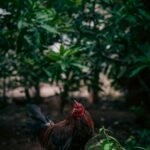Yard Maintenance: Techniques and Tools for a Flourishing Garden
Achieving a verdant and thriving garden requires dedicated yard maintenance, which starts with understanding seasonal care. Each season presents its own set of challenges and opportunities for garden upkeep. In spring, focus on soil preparation by incorporating organic matter and compost to rejuvenate your garden beds. Planting should be done strategically, considering the specific sunlight and water needs of each plant. By summer, regular watering and mulching will help retain soil moisture, while autumn demands leaf clean-up and winter preparations to protect plants from frost.
Soil preparation is fundamental for a flourishing garden. Begin with testing your soil to determine its pH and nutrient levels. Amending the soil with the right mix of compost, manure, or synthetic fertilizers will create an optimal growing environment. Ensure proper aeration to promote root growth and water penetration. When planting, space your plants appropriately to avoid overcrowding, which can lead to poor air circulation and increased disease risk.
Irrigation is another crucial aspect of yard maintenance. Drip irrigation systems provide consistent moisture directly to the plant roots, reducing water waste and promoting uniform growth. Regularly check and clean irrigation systems to prevent blockages. For efficient water use, implement a watering schedule that aligns with the specific needs of your plants.
The choice of tools and equipment significantly impacts the efficiency of yard upkeep. A high-quality lawnmower keeps your grass at an optimal height, while trimmers help maintain clean edges and hard-to-reach areas. Garden sprayers are invaluable for applying fertilizers, pesticides, and herbicides. Choose user-friendly, durable tools that match the demands of your garden to facilitate ease and effectiveness in your maintenance routine.
Sustainable gardening practices ensure long-term health and productivity of your garden. Rotate crops annually to prevent soil depletion and pest build-up. Integrated pest management (IPM) combines biological, cultural, and mechanical methods to manage pests with minimal chemical use. Organic fertilizers such as compost, bone meal, or fish emulsion nourish your plants while fostering a healthy soil ecosystem.
By integrating these techniques and tools, you will cultivate a lush, resilient garden that flourishes in harmony with its natural environment throughout the year.
Raising Small Poultry: Tips for Chickens and Ducks on Your Property
Raising small poultry, including chickens and ducks, on your property can be a rewarding venture that provides fresh eggs and meat, alongside delightful companionship. Choosing the right breeds is crucial for your success. For beginners, hardy and adaptable chicken breeds like Rhode Island Reds and Leghorns are ideal. Similarly, Pekin and Khaki Campbell ducks are excellent choices due to their resilience and prolific egg-laying capabilities.
A well-designed coop or shelter is essential for the health and safety of your poultry. Chickens require coops with proper ventilation, predator-proofing, and sufficient roosting space. Ducks, on the other hand, need a spacious shelter with easy access to water for swimming. Ensure that both chickens and ducks have space to roam freely in a secure, fenced-off area.
Nutrition plays a fundamental role in the productivity and vitality of your poultry. Provide a balanced diet rich in essential nutrients. Commercial layer feeds are specially formulated for laying hens and ducks, supplying the right mix of protein, calcium, and other vitamins. Supplement their diet with kitchen scraps and grains, and ensure they have constant access to fresh water.
Daily care routines are pivotal in maintaining a healthy flock. This includes consistent feeding, water replacement, and cleaning of the coops to prevent the buildup of waste and bacteria. Regular health checks are also vital to spot potential issues early. Look out for signs of illness such as changes in behavior, feather loss, or abnormalities in egg production.
Poultry keepers often face challenges such as predator threats, extreme weather conditions, and health issues like mites and respiratory infections. Implement preventive measures such as securing the coop and providing adequate insulation. Additionally, build a first-aid kit stocked with poultry care essentials to address minor health problems promptly.
Product selection can significantly influence the success of your poultry-keeping endeavors. Reliable feeders and waterers, such as those from brands like Harris Farms and Little Giant, ensure consistent food and water supply. For those interested in breeding, incubators like the Brinsea Mini Advance offer excellent temperature control and a user-friendly interface.
Whether you are new to poultry keeping or looking to expand your flock, this guide provides the fundamental knowledge needed to successfully integrate chickens and ducks into your ranch. By selecting the right breeds, setting up appropriate shelters, ensuring proper nutrition, and adhering to daily care routines, you can enjoy the benefits of raising small poultry on your property.




